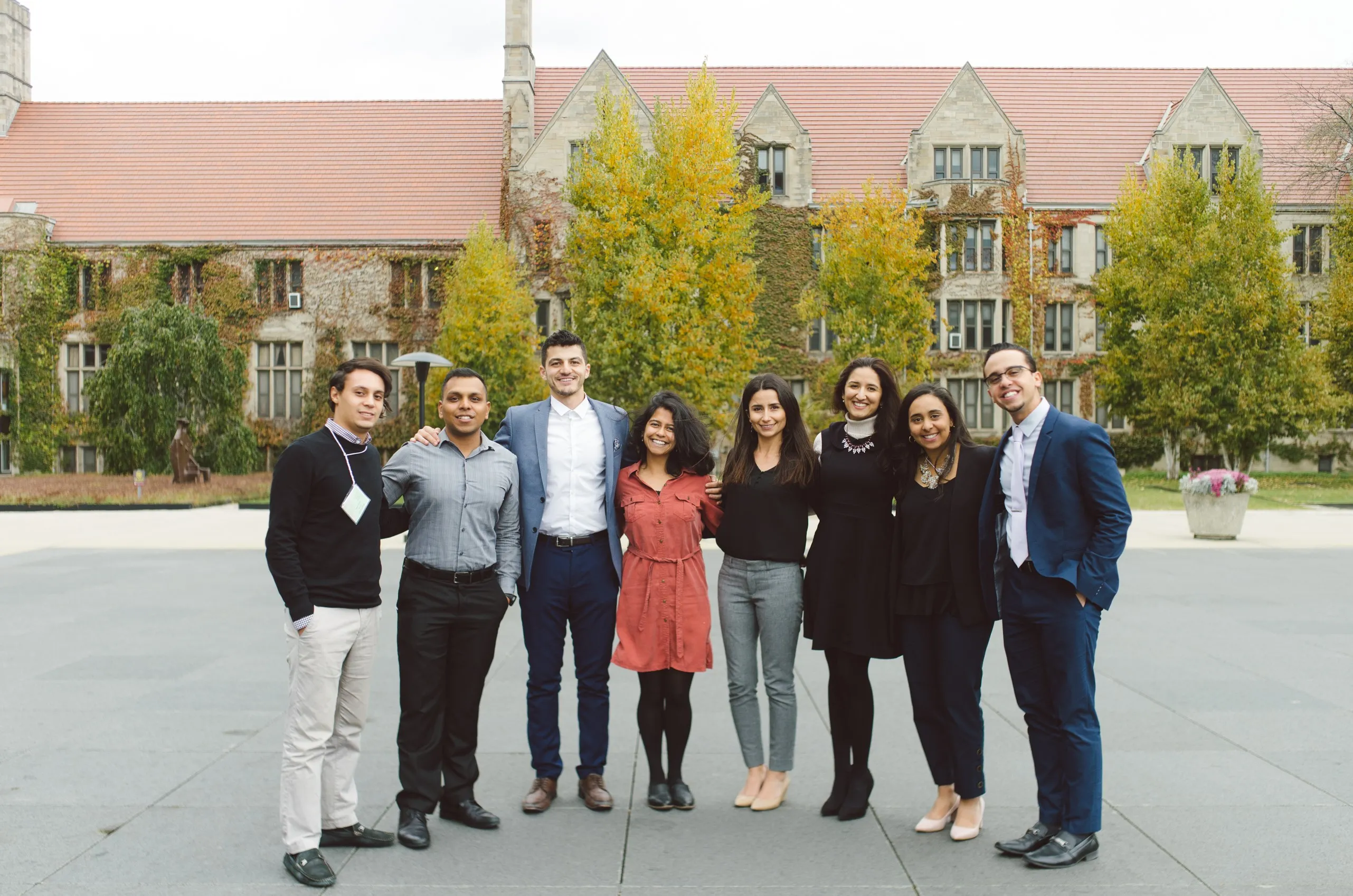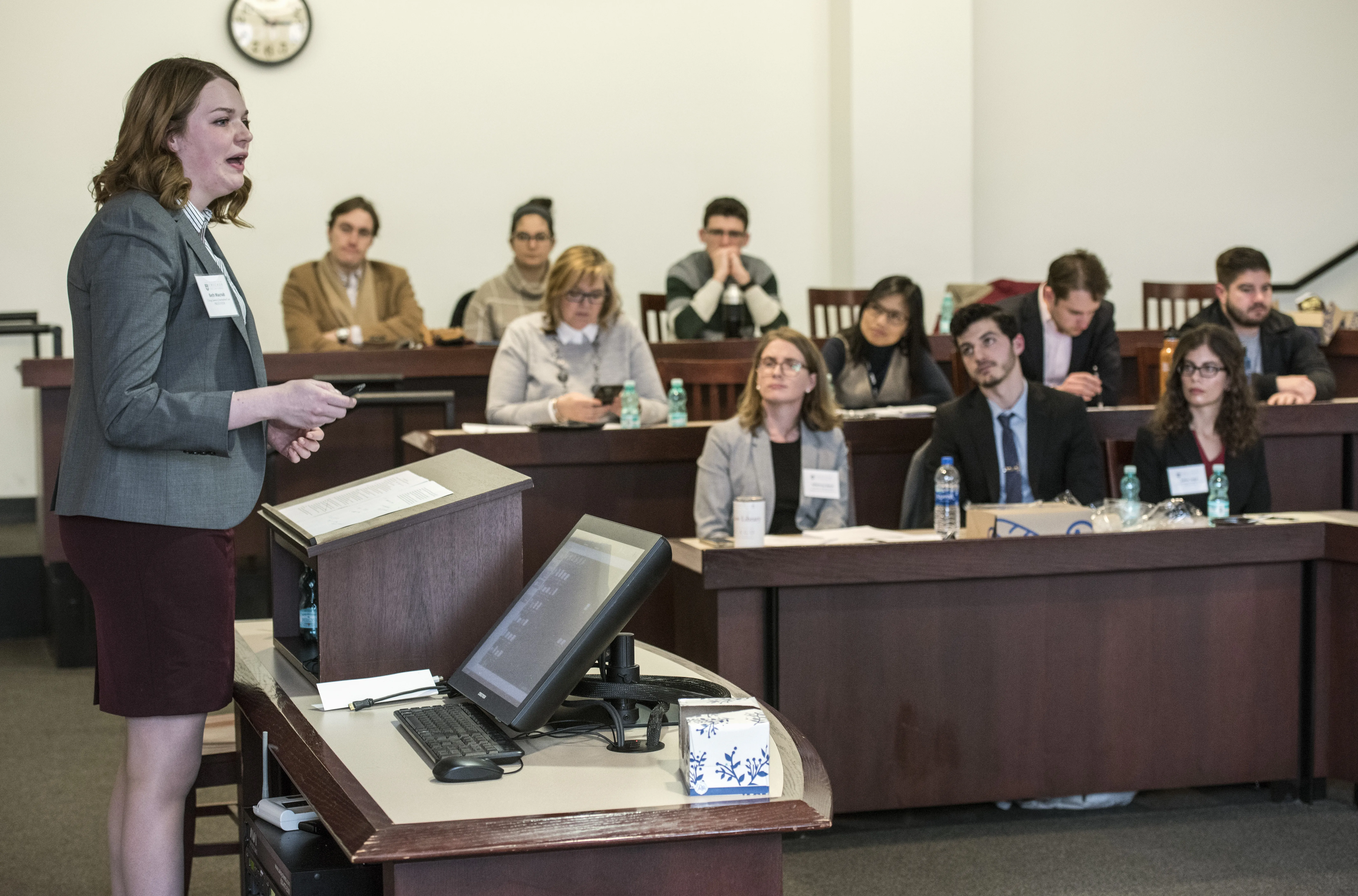Building Trust Abroad: A Student's Experience in Kenya
When registering this fall for the International Human Rights Clinic with Professor Claudia Flores, the clinic’s director, and Brian Citro, the associate director, I was excited to work on a project with the United Nations Office for the High Commissioner for Human Rights researching how women were affected by and incorporated into programs addressing violent extremism. I wanted to research and understand how government and civil society security programs affect women and minorities across countries, and contend with how programs can be used to strengthen or diminish human rights.
We spent months on desk research—and then just two weeks preparing for our trips abroad. That’s when we learned that I, Professor Citro, and our public policy graduate student team member Hafsah Lak would be traveling to Nairobi over spring break while two classmates and Professor Flores visited Tunisia. (Another clinic group working on a land restitution project also visited Myanmar. Read more about the program here.) The short notice wasn’t ideal, but human rights work often requires flexibility and an ability to switch gears. And so we scheduled flights, applied for visas, arranged meetings, and hastily packed.
I arrived about 24 hours after my last winter final, though it had been a day and a half with the hours I lost flying east. That first morning, we visited the Nairobi office of the United Nations to meet with the officials we had already spent hours corresponding with over conference calls and by email. Our work, as we suspected, was highly sensitive; the fact-finding involved investigating government corruption, examining insulated minority communities, and learning about women who were too afraid to speak of their experiences to anyone except those who they trusted. Even though I had studied interview methods in my fall Human Rights Seminar with Professors Flores and Citro, it was another matter to put them into practice immediately. With a limited time with stakeholder, we quickly had to establish trust to allow for candid communication, keep an open ear to the experiences of the organization, while still focusing the discussion on women in the country. Each group, institution, and activist we spoke to helped set us up with others they knew doing work in the area, and because we were on the ground we were easily able to drive to appointments made just hours after our first contact.
The importance of being in the same room as the people with whom you work became particularly apparent once we arrived in the coastal city of Mombasa. The city has a dual spirit: it is a beach resort for vacationers from around the world, and it is surrounded by poverty. The women in the county were caught between traditional notions of their place in the family, ideologue recruiters of extremist groups, and increased scrutiny by government forces. In five meetings with activists who work with the most marginalized women in their community, we learned about women who have become instruments of violent extremism, either willingly or not, and what happened to them when they tried to return home. There were some cases in which young women unknowingly married members of Al Shabaab, and were immediately taken to Somalia in the middle of an open conflict with the government. For women who found themselves in that predicament, the first challenge is returning home, the second is reintegrating in the old lives despite all they had experienced. The legal work done by groups like HAKI Africa to provide counseling and representation for people accused of participating in violent extremism was necessary, urgent, and inspiring.
Despite all the information our clinic team had gathered in our research and conversations with the UN Geneva office, it was these in-person meetings that allowed us to build trust and have frank, detailed conversations. The relationships we developed, even over a few hours, were key to creating the exchange required for work in the developing and precarious field of violent extremism. Sometimes the information we collected confirmed our findings, and sometimes it surprised us.
Since returning to the clinic, the majority of our time has been discussing and synthesizing our findings with the Tunisia team. I was surprised to find that the political environment of Tunisia, a country with a new government, made it much more difficult to advocate for human rights because of the pushback from the general public, and that unlike in Kenya, a clear framework or focused programs to incorporate women into countering violent extremism had not yet been established. I am confident that the work we produce will be helpful to government officials, policy makers, and community groups, including the groups with whom we spoke. I am grateful both for the opportunity to travel to continue the work our project, and for being able to put into practice the skills I will need for the rest of my legal career.


